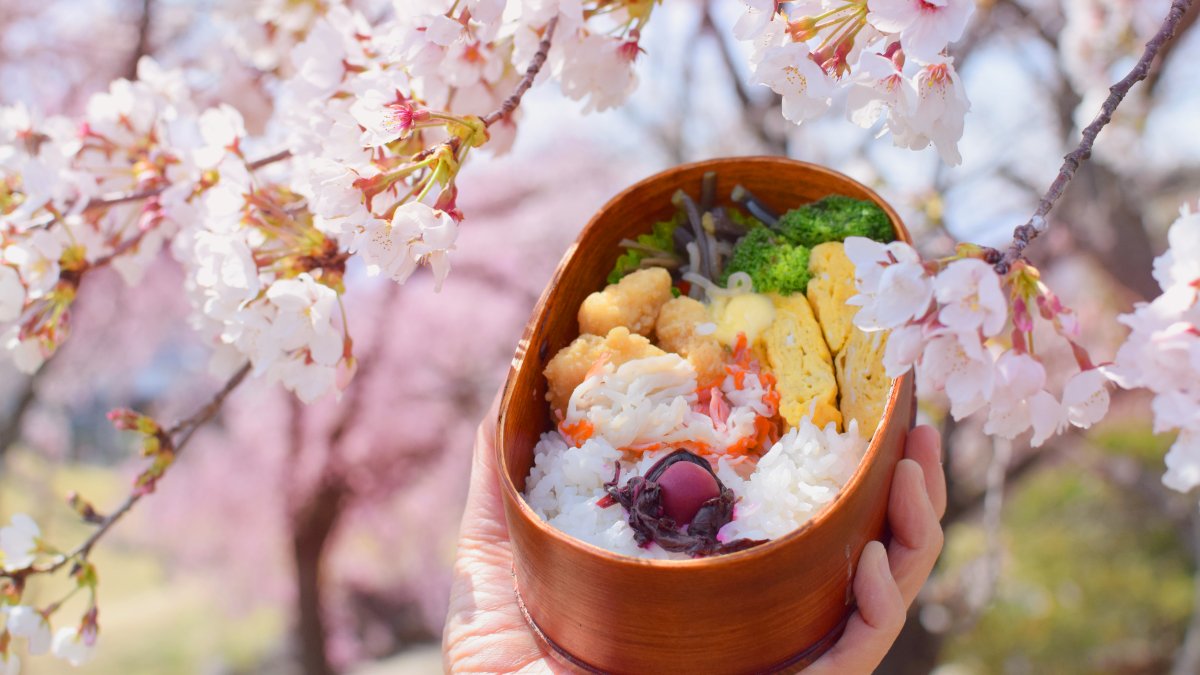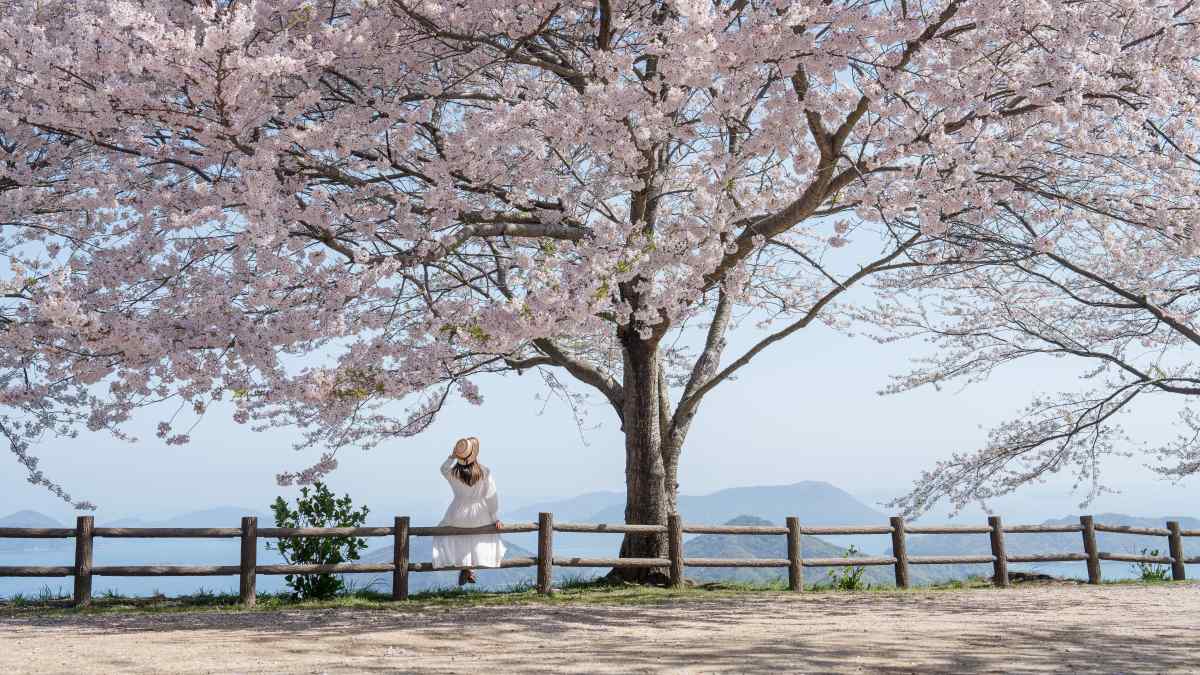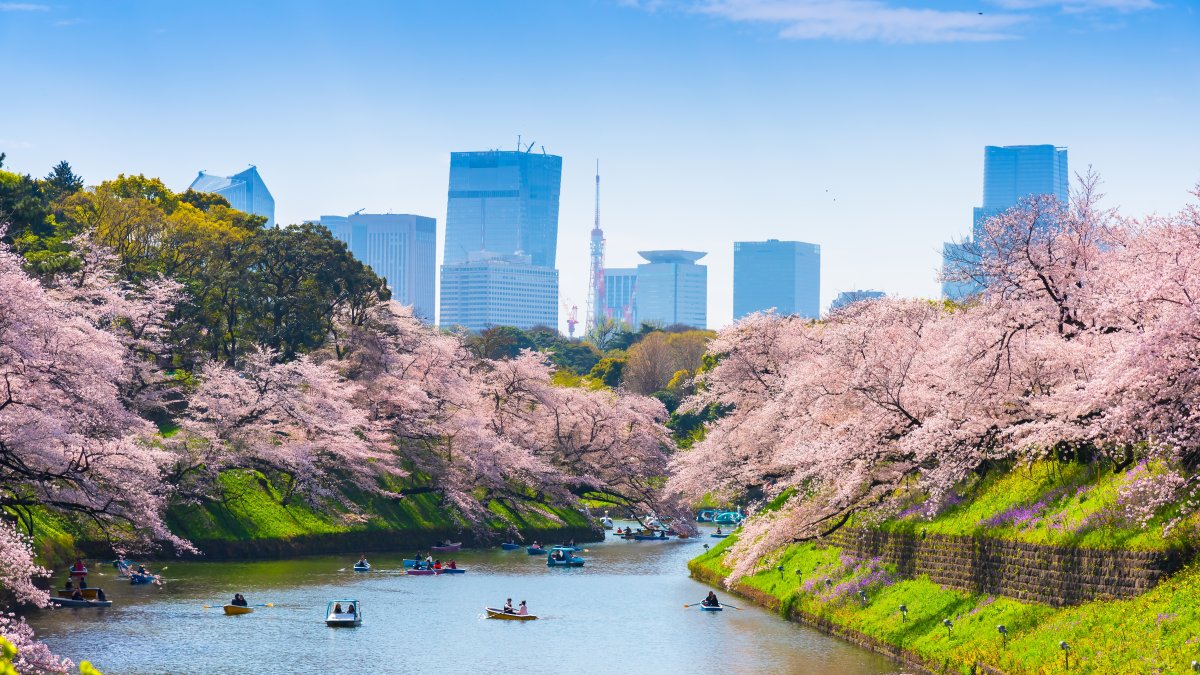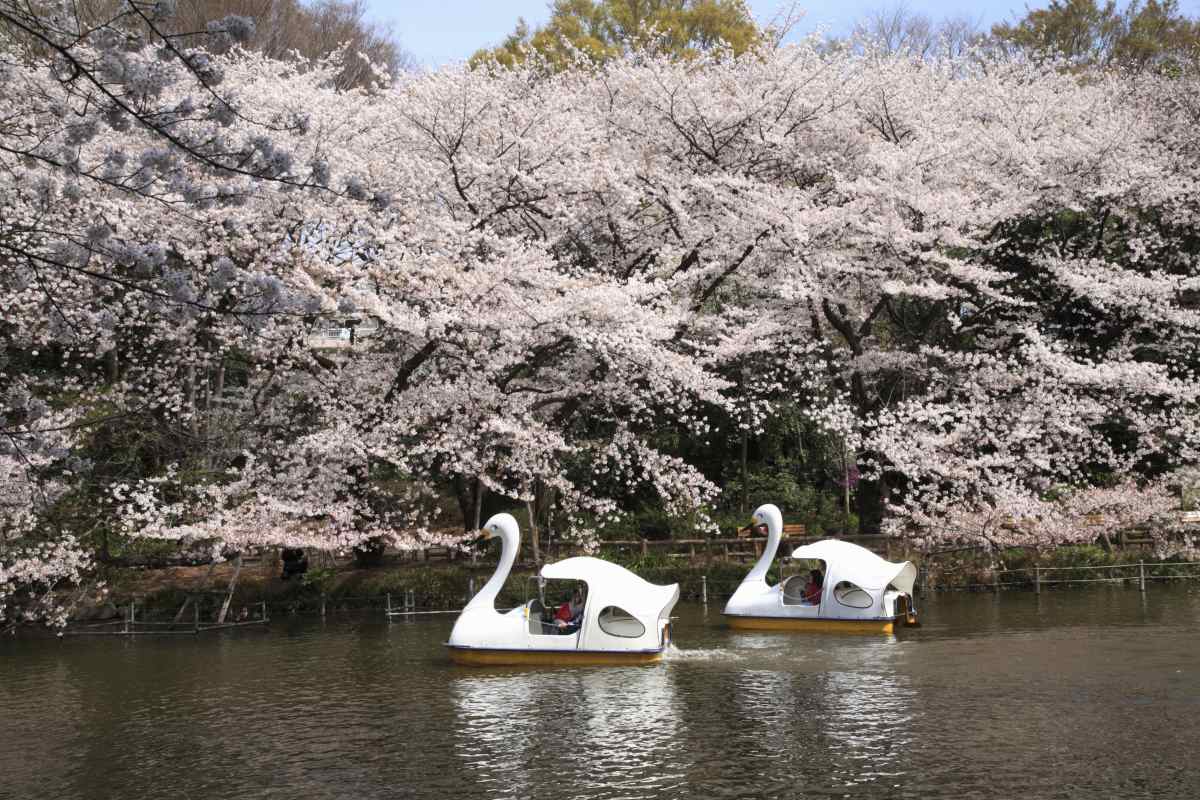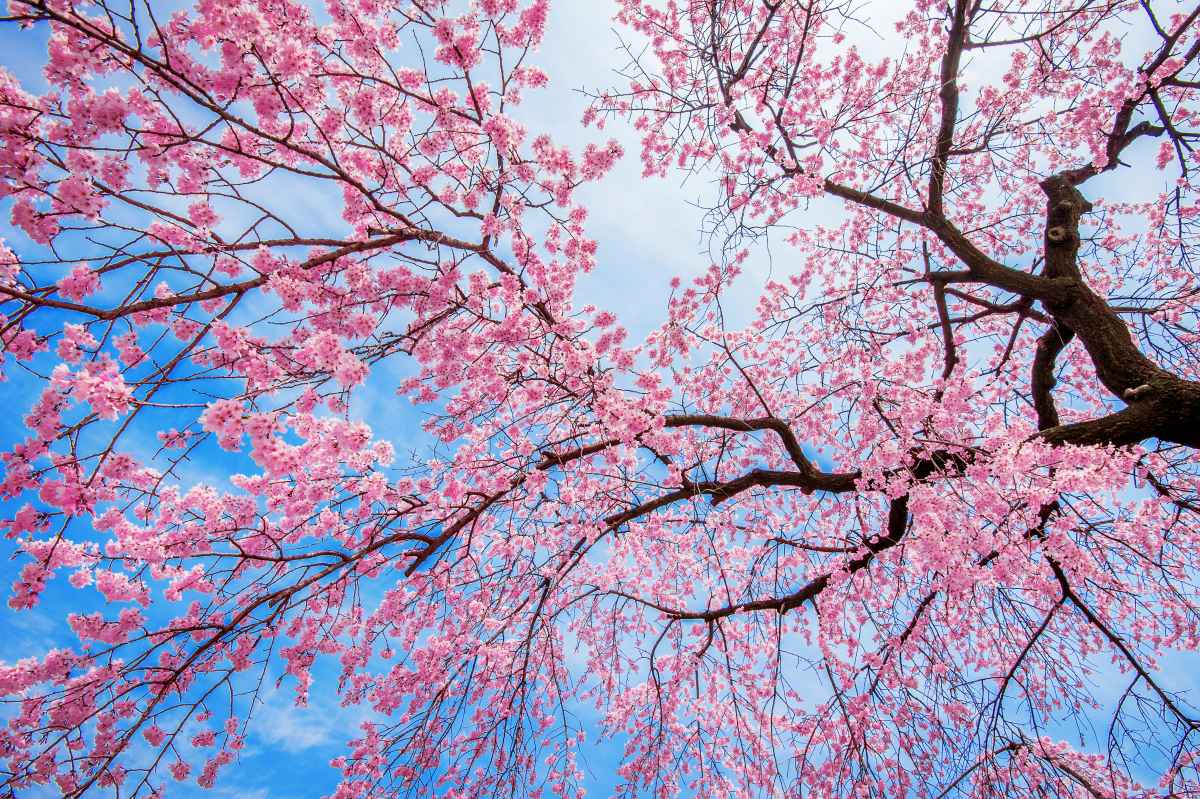The Ultimate Guide to Hanami: Japan’s Cherry Blossom Viewing Tradition
Every spring, Japan transforms into a breathtaking sea of pink as cherry blossoms, or sakura, bloom across the country. This fleeting yet mesmerizing natural spectacle draws millions of visitors, both local and international, to parks, temples, and riversides for a time-honored tradition known as hanami. Whether you are a first-time visitor or a seasoned traveler, experiencing hanami is a must when visiting Japan in spring. This guide will help you understand the cultural significance of hanami, how to prepare for it, and the best places to enjoy this cherished tradition.
What is Hanami?

Hanami (花見) is a cherished Japanese tradition that translates to “flower viewing.” While it originally encompassed admiring plum blossoms, it has become synonymous with appreciating cherry blossoms (sakura). Dating back to the Nara period (710-794), hanami embodies the Japanese philosophy of mono no aware, a deep appreciation for the fleeting beauty of life, much like the ephemeral cherry blossoms that bloom for just a short period each spring.
The Significance of Hanami

Cherry blossoms symbolize renewal, the arrival of spring, and the transient nature of life. Hanami gatherings bring people together to reflect on these themes while celebrating with food, drinks, and good company. The tradition is widely enjoyed across Japan, from public parks to historical sites, where families, friends, and coworkers gather beneath the blooming trees.
Historically, hanami was an exclusive pastime for the imperial court and aristocrats during the Heian period (794–1185). Poets and artists drew inspiration from sakura, creating works of art that celebrated the blossoms’ delicate beauty. Over time, the practice spread to the samurai class and eventually to common people during the Edo period (1603–1868). Today, hanami is an integral part of Japanese culture and is celebrated by people of all backgrounds.
How to Do Hanami: A Step-by-Step Guide
Choosing the Best Hanami Spot
Japan offers countless breathtaking locations for hanami. Some famous spots include:
- Tokyo: Ueno Park, Shinjuku Gyoen, Chidorigafuchi, Sumida Park
- Kyoto: Maruyama Park, Philosopher’s Path, Heian Shrine Gardens
- Osaka: Osaka Castle Park, Kema Sakuranomiya Park, Mint Bureau
- Other Regions: Hirosaki Park (Aomori), Kumamoto Castle (Kumamoto), Goryokaku Park (Hokkaido), Miyajima (Hiroshima)
If you’re unfamiliar with Japan and hesitant to go hanami on your own, consider joining a guided tour where local experts take you to scenic locations while providing cultural insights and delicious local food. Some recommended tours include:
- Tokyo Cherry Blossom Viewing in Yanaka with Local Guide
- Evening Meguro Cherry Blossom Viewing in Tokyo with Local Guide
- Kyoto Cherry Blossom Viewing & Local Food Tour
- Osaka Spring Cherry Blossom Viewing in Karahori
Best Time for Hanami
Cherry blossoms bloom at different times across Japan, depending on the region and weather conditions. The sakura zensen (cherry blossom front) is closely monitored, and forecasts are released each year to help people plan their hanami outings. Here’s a general timeline:
- Okinawa: Mid-January to early February
- Kyushu & Shikoku: Late March
- Honshu (Tokyo, Kyoto, Osaka): Late March to early April
- Tohoku: Mid to late April
- Hokkaido: Late April to early May
Since blossoms last for about one to two weeks, it’s essential to check forecasts and plan accordingly.
What to Bring for a Hanami Picnic
A successful hanami experience requires preparation. Here’s a checklist of must-have items:
- Picnic Sheet (Tarp) – Essential for claiming a comfortable spot.
- Food & Drinks – Traditional choices include hanami dango (sweet rice dumplings), sakura mochi (cherry blossom-flavored rice cakes), onigiri (rice balls), and sake.
- Disposable Plates, Cups, and Utensils – For easy sharing and cleanup.
- Garbage Bags – Parks often require visitors to take their trash home.
- Warm Clothing – Even in spring, evenings can be chilly.
- Portable Charger – Capture the stunning blooms without worrying about battery life.
- Lanterns or LED Candles – For night hanami (yozakura).
Hanami Etiquette: Do’s and Don’ts
Do’s:
- Arrive Early – Popular spots get crowded quickly.
- Respect Reserved Spaces – Some areas may have designated picnic zones.
- Dispose of Trash Properly – Carry trash bags and separate recyclables.
- Be Mindful of Noise – Keep music and conversations at a respectful volume.
- Enjoy the Moment – Take photos, but also pause to appreciate the beauty of the blossoms.
- Check the Regulations of the Spot You’re Visiting – Certain parks don’t allow open fire, loud music, or drinking alcohol.
Don’ts:
- Don’t Pick the Blossoms – Admire them, but leave them untouched.
- Don’t Block Pathways – Keep walking areas clear for others.
- Don’t Stay Too Close to Trash Bins – The smell can become unpleasant as the day progresses.
- Don’t Forget to Plan for Toilets – Lines can be long, so locate restrooms in advance.
- Don’t Shake the Branches to Create a Sakura Fubuki – Let the petals fall naturally without disturbing the trees.
Food and Drinks for Hanami
Hanami is as much about the food as it is about the blossoms. Some popular treats include:
- Hanami Dango – Three-colored rice dumplings on a skewer.
- Sakura Mochi – Sweet pink rice cake filled with red bean paste and wrapped in a cherry leaf.
- Bento Boxes – Sushi rolls, tempura, and tamagoyaki (Japanese omelet).
- Grilled Yakitori – Skewered chicken cooked over a charcoal grill.
- Onigiri – Rice balls filled with umeboshi (pickled plum), salmon, or tuna mayo.
- Sake & Sakura-Flavored Drinks – Enjoyed to complement the experience.
Experience Hanami with Ease
If you’d like a stress-free hanami experience, guided tours offer expert-led excursions to some of Japan’s best cherry blossom spots. Not only will you be able to enjoy the blooms without worrying about logistics, but you’ll also get to taste delicious seasonal delicacies and learn more about Japanese culture.
Whether you go alone, with friends, or on a guided tour, hanami is a magical experience that encapsulates the beauty and philosophy of Japan’s spring season. Enjoy the moment, respect the tradition, and immerse yourself in the wonder of cherry blossoms!

